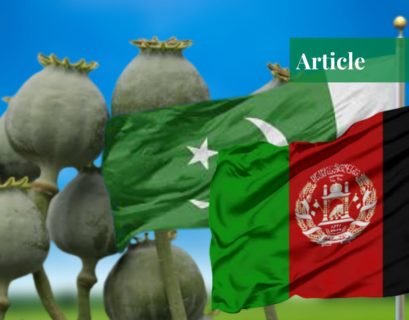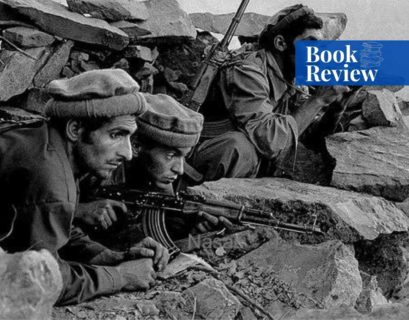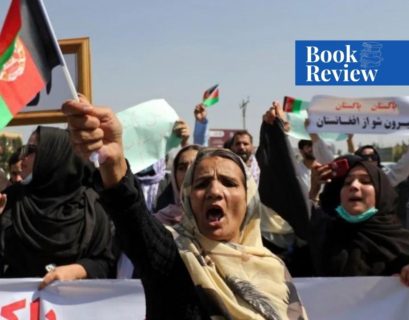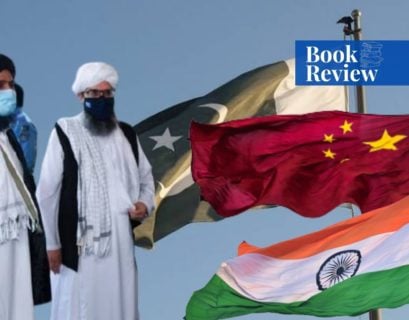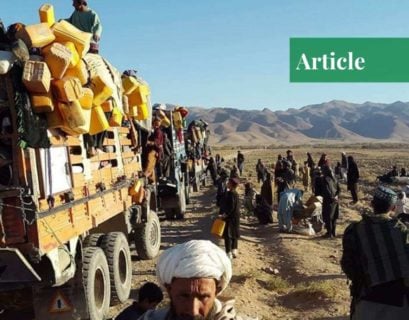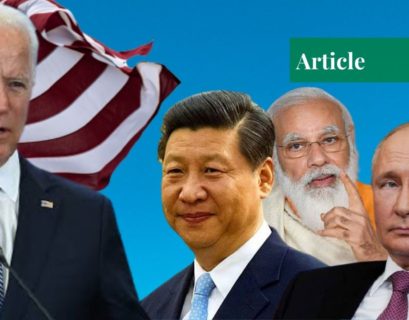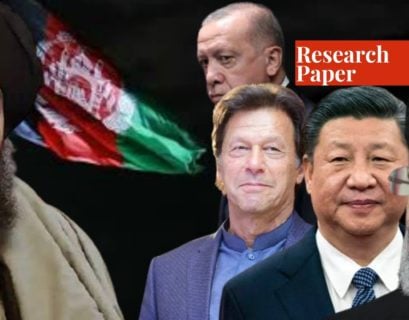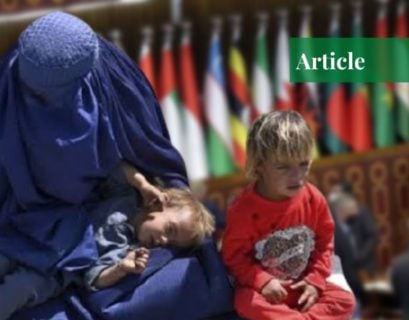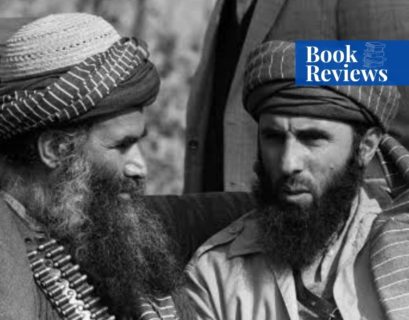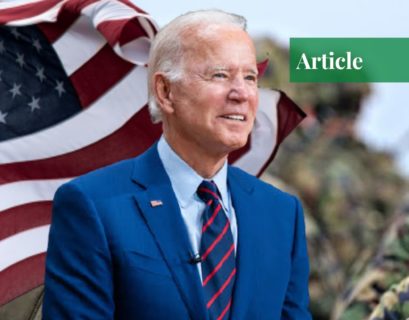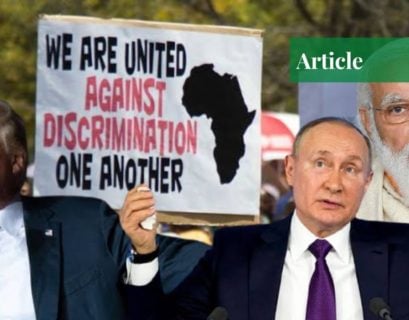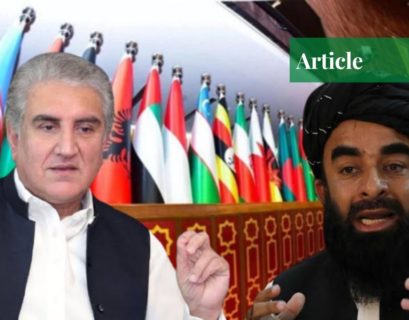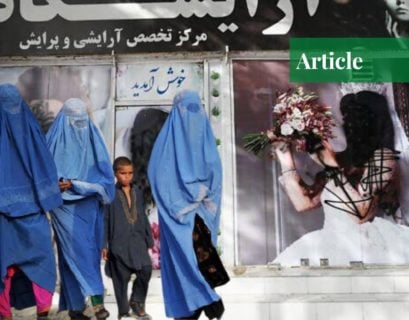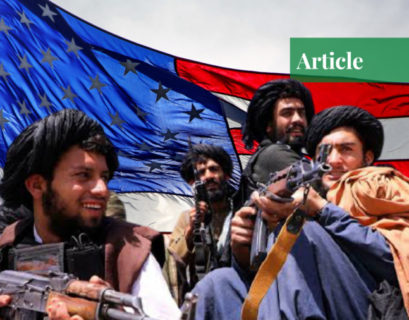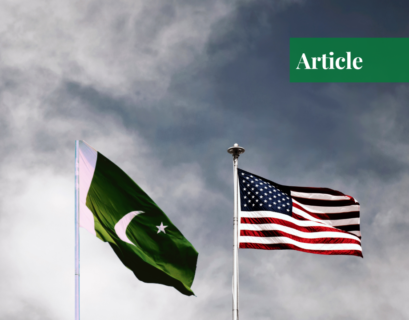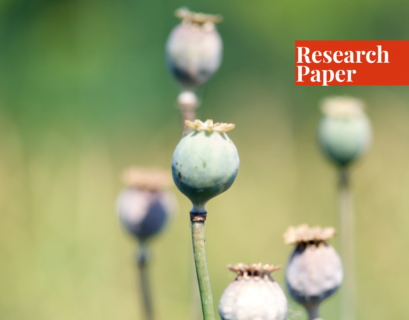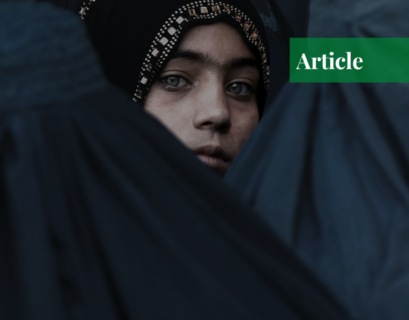Trafficking of Drugs: The Implications of a Porous Border Between Afghanistan & Pakistan
Pakistan’s close proximity to Afghanistan has caused it to become the perfect target for drug trafficking. Rooha Javed explains that Afghanistan – one of the largest producers of opium in the world – has taken advantage of Pakistan’s transit route to not only acquire precursor chemicals for drug manufacturing but also for smuggling illegal drugs to the international market. Though Pakistan has adopted measures to counter this illegal drug trade, the number of Pakistanis suffering from drug addiction and overdose is increasing every day.
The Great Gamble: The Soviet War in Afghanistan (Book Review)
“The Great Gamble: The Soviet War in Afghanistan” provides an overview of the Soviet Union’s direct and indirect involvement in Afghanistan. Gregory Feifer, the author of the book, traces the events that led to the Soviet invasion in 1979 and analyzes the war itself. In doing so, he aptly explains the role of Pakistan in bringing the Soviet war to an end, and how the US’ uncalculated actions in Afghanistan led to intensifying extremism and terrorism.
A Book Review of War Without Winners
Rasul Baksh Rais’s “War Without Winners: Afghanistan’s Uncertain Transition After the Cold War” explored the Afghan War through a domestic lens in 1994. It was very much ahead of its time, as its contents reminded individuals and states that only the Afghans would be able to resolve the conflict in their country.
Pakistan’s Foreign Policy: A Reappraisal by Shahid Amin
The book “Pakistan’s Foreign Policy: A Reappraisal” by Shahid Amin provides a comprehensive analysis of the state’s foreign policy throughout the years while keeping in mind the relations between Pakistan and India. The book explains, in great detail, how the perception of an “Indian threat” has influenced Pakistan’s decision-making. Apart from the India-Pakistan relations, Mr. Shahid Amin also elaborates on Pakistan’s role in Afghanistan after the 1979 Soviet invasion, and its relations with the Muslim countries and China.
How Climate Change in Afghanistan Is Forcing Migration
The drastic changes in climate have left millions of people vulnerable, causing them to migrate from their homelands in search of more stable environments. The effects of climate change have been particularly devastating for Afghanistan. Rooha Javed explains that droughts, earthquakes, and floods have become increasingly common in the state. In 2019 alone, 287,000 people, mainly from the western and northern regions of Afghanistan, had been displaced due to a drought.
A Tug of War Between America and the Rising Powers
A unipolar world is transitioning into that of a multipolar, stirring the debate on the decline of the US once again. China, India, and Russia — the major contenders — are challenging the US’s sole authority. The author, Ali Raza Jalbani, follows the debates closely and shares what he’s noticed about the shifting — or sharing — of power in the global arena.
A Peaceful Afghanistan: The Interest of Pakistan, China, & the Region
Over the years, the state of Afghanistan has experienced terrorism, drug trafficking, human rights abuse, political turmoil, geostrategic and geo-economic tussle, and societal deterioration. The instability in the state has impacted Pakistan, China, Iran, Turkey, and the Central Asian Republics as well. The authors, Muhammad Saad, Eman Anjum, Jizza Babar, and M. Shaheer Khattak, note that for their own interests, these regional states seek a peaceful Afghanistan, the establishment of which is not an easy task. For this reason, they have made efforts to stabilize and develop the war-torn state.
The OIC Conference on the Humanitarian Crisis in Afghanistan
A little over a month has passed since Pakistan organized the 17th extraordinary session of the OIC Council of Foreign Ministers, but Afghanistan’s situation shows no signs of optimism. The author, Mairaj ul Hamid Nasri, gives a summary of the deliberations and the commitments made at the meeting.
Night Letters: Gulbuddin Hekmatyar and the Afghan Islamists Who Changed the World
In their book, Night Letters, Chris Sands and Fazelminallah Qazizai venture together into the historical depths of Afghanistan. They relate a fair account of Gulbuddin Hekmatyar and his political ambitions, notably the Islamic Movement.
The Hypocrisy of Democracy in America: From Military Interventions to the Recent Summit
Though America considers itself the true representative of democracy, its actions prove otherwise. The hypocritical nature of the United States is apparent from its propensity to get militarily involved in other states, like Afghanistan, Syria, and Iraq, in the name of promoting democracy. The authors argue that contrary to establishing a democratic regime, the US military interventions have worsened the instability in these states. Moreover, the US itself is a dysfunctional democracy and even the Summit for Democracy can be seen as an effort to divide the world and preserve the US hegemony.
Nationalism in International Relations: Tracing the Roots of Xenophobia
Nationalism captures the important yet equally detrimental—if manifested unwisely—unity that is triggered from the loyalty and dedication towards one’s homeland. To the author, Mahrukh Khalid Siddiqui, xenophobia and discrimination are viewed as the by-products of classical nationalism. Discriminatory actions are fueled by presumptions, prejudice, lack of knowledge, and stereotypes.
Pakistan Hosts the 2021 OIC Meeting on Afghanistan
Pakistan will host the 17th extraordinary session of the OIC Council of Foreign Ministers today. The fact that it will be the largest ever conference on Afghanistan since the Taliban took charge in mid-August is momentous not only for Pakistan but also for other regional countries whose role in Afghanistan has remained significant throughout.
Women of Afghanistan under Taliban Rule
Since the Soviet invasion of Afghanistan in 1979, the state has been in a constant state of turmoil, the brunt of which Afghan women had to face. The status of women’s rights worsened after the Taliban first came to power in 1996. The women of Afghanistan were forced to marry Taliban soldiers, deprived of their right to education, healthcare, and employment, and were subjected to violence and public executions. Despite the claims of the current Taliban regime, the past cannot be erased. After the US withdrawal from Afghanistan, the relative freedom that Afghan women had gained over the years is being threatened, and they fear for their lives once again.
The Second Round of the Doha Talks Between America and the Taliban
About 40% of Afghanistan’s GDP and 75% of its public expenditure depends upon foreign aid. Since the Taliban takeover, the foreign assistance to the state has taken a plunge and the US government has seized over $9.5 billion worth of Afghan assets, worsening the humanitarian and economic crisis in Afghanistan. Given the deteriorating situation in Afghanistan, the US and the Taliban have, once again, decided to cooperate and pursue a second round of talks in Doha. Although the Taliban regime has not been recognized by the US, the former is hopeful that the two-day talks will start a “new chapter” in their political relations.
Pakistan and US Relations: A History of Betrayal
Despite being close allies during the Cold War, the author believes the relations between Pakistan and the United States to be rather strained — and almost at a breaking point. The domineering United States has always taken advantage of Pakistan’s prominent yet vulnerable position in the South Asia region clearly embittering Pakistan.
The Incessant Opium War in Afghanistan
Afghanistan’s relation to the illegal drug trade can be traced back to the 1980s. Since then, opium cultivation has become an integral part of Afghanistan’s economy and the livelihoods of its farmers. The author, Madiha Rauf, notes that although the US and the previous Afghan governments have introduced measures to reduce opium production and trade, the efforts have been half-hearted. In reality, Afghanistan’s opium trade has not only benefitted the warlords and the Taliban but also the previous regimes. Although the Taliban regime has made promises to eradicate the illegal drug trade, given the state’s dependency on it, it is unlikely to fulfill these promises and the opium war in Afghanistan might not see an end in the near future.
The Interim Taliban Government in Afghanistan: Will It Be Internationally Recognized?
The Taliban’s announcement of an interim government in Afghanistan was not a surprise to the international community. With no female—and hardly any ethnic—representation, the interim government will most certainly not get instant recognition.
The author, Mr. Muhammad Abubaker, also underscores the humanitarian crisis brewing in Afghanistan.
